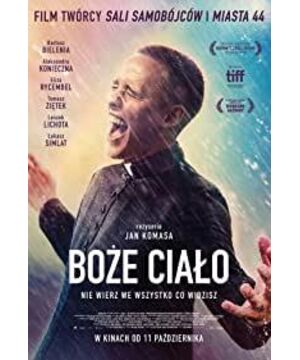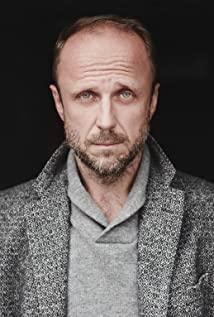At this year's Oscars awards ceremony, South Korean director Bong Jun-ho stole the limelight and swept four awards with a "Parasite". Perhaps the front is too dazzling, covering up some other equally powerful films, especially in the best international film award. The remaining four selected are all excellent works from a hundred, "Honeyland", "Pain and Glory" "" and "Les Miserables" can be said to be familiar to everyone, and in my opinion this "Communist of Christ" from Poland must not be underestimated.
It is easy to think of stereotyped religious themes from the name of this film, but in fact this Polish film explores the nature of faith and the plight of the religious system in a different way. The protagonist of the film is very similar to the French film "Prayer" which won the Berlin actor two years ago. It also unfolds the narrative from the perspective of a young man who has gone astray, and personally understands the salvation essence of religion. However, compared to the use of religion as a means of detoxification in "Pray", this film's reflection on religion is more complicated and intriguing.
The drama of the film is quite excellent, with two narrative clues intertwined in parallel: on the one hand, the protagonist who pretends to be a priest experiences spiritual washing and thought changes in this closed town; on the other hand, the protagonist’s intervention caused the people to be triggered by a car accident. The resentment between them was resolved. The story of this fake priest may not be unfamiliar, but through the protagonist’s choice of fate, the audience can think deeply about the essence of the faith.
A piece of clothing can change a person's identity, and the body of an ordinary person can also take on sacred tasks. Juvenile delinquents naturally also have the opportunity to obtain salvation, and enjoy the same spiritual power as the priest to solve problems for the people, even though his behavior seems far from the scope defined and allowed by religion. This vague concept of religious morality is vividly displayed in this character. At one time, he was a scumbag, and at one time, he was a pious and responsible clergyman. When his true identity was revealed, the two narrative clues gradually merged: the people in the small town were relieved from the car accident, and when the audience thought that the protagonist was redeemed through the incident, they encountered a happy ending. The reversal ended in amazement.
This abrupt ending reminded me of the widow he tried his best to help in the small town. It seems that he did not come from advocating justice or preaching selfless love. In fact, he saw his own experience from the widow. The widow was isolated by the other people in the town because her husband drove in a car accident that caused six lives. Isn't his experience at the juvenile office also the same? He was ostracized by the people around him and the society because of the negligence of murder. The priest in prison first dispelled his idea of becoming a clergyman in the future, and the police who appeared later showed disdain for him, believing that he could not be reconciled. In the process of helping the widow to reconcile with everyone and reintegrate into the community, he hopes that he will be re-accepted by this society in the future. However, the ending of the film completely shattered his good wish.
This ending has an added layer of irony and questioning to Western traditional religions, and it seems to expose the plight of the religious system. As a result, this seemingly common theme of "counterfeit goods" has improved a lot in the open ending, especially when the protagonist flees to an unknown direction with blood and confused eyes at the end of the screen.
View more about Corpus Christi reviews











